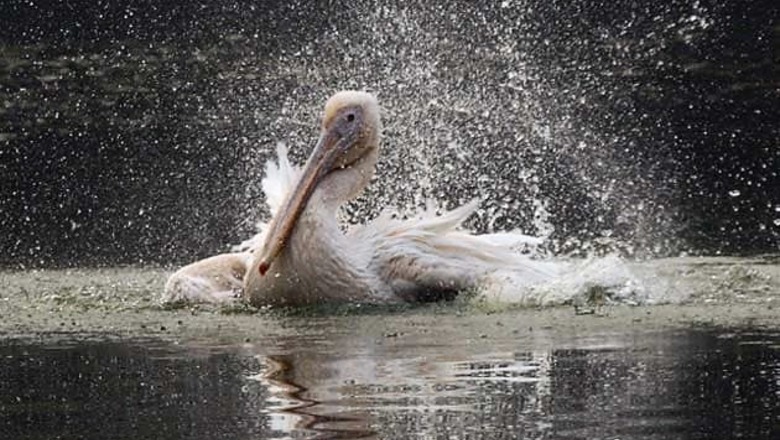
views
New Delhi: Providing animals with desert coolers, special pools to wallow in, water-rich diet of fruits like watermelon and electrolyte fluids are some of the special steps taken by the Delhi zoo authorities to bring relief from the searing heat. Apart from special arrangements in their enclosures, significant changes in diet, like 'rice-kheer' replacing bread, and fluid intake of animals and birds are also being made in the National Zoological Park, which is home to around 110 different species.
"At first, we are in the process of installing coolers which will be run all day long inside enclosures of animals including tigers, jaguars, lions and elephants, and birds. This will help ensure air circulation," zoo veterinary official N Panneer Selvam said. Increased intake of glucose, electrolyte fluids, vitamin C and fruit-rich diet are also important to restore electrolyte balance, zoo officials said.
According to Selvam, herbivores such as deers, buffaloes and chinkaras will be given fruits like cucumber, watermelon which are rich in vitamins. Other than that, 'rice-kheer' will replace bread in the daily diet.
Among the carnivores including the big cats, meat-intake has been reduced by a few kilogrammes while water intake has been doubled for all animals. The officials say that as the day temperature is hovering close to 40 degrees Celsius, animals are more prone to diarrhoea and heat stroke. "Our veterinarians are conducting regular check-ups to detect illness at an early stage," Selvam said. Until last year, the Delhi zoo did not have temporary wallowing pools inside enclosures of big animals such as hippopotamus, elephants and buffaloes.
However, this year the authorities have constructed both 'kuccha' and 'pucca' ponds meant for animal bath to keep them cool at least twice a day. "There is also a provision of dust bath inside enclosures of many animals," Riaz Khan, zoo curator (education), said.
Special arrangements have also been put in place for winged inmates of the zoo. "Seasonal fruits have been included in their diet. Enclosures will be sprinkled with water every day for temperature regulation," said the zoo curator. Renovation work which is going on in the zoo has further broadened the scope for the authorities to help the animals cope with heat as new sheds are being constructed in some enclosures.
With more saplings being planted to keep zoo environs cool, the authorities are hoping to minimise cases of illness among animals and birds. Recently, under the inter-zoo exchange programme, a pair of ostrich was brought in from zoo. Special arrangements are already in place for them.
"For new (zoo) inmates, the most important aspect is providing sufficient space. For ostrich, increasing water intake is one of the most important aspects," said Selvam. During summers, number of visitors increases in the National Zoological Park which currently houses 1,556 animals and birds.



















Comments
0 comment